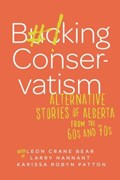Narrow Results By
- Adese, Jennifer 1
- Borys, Stephen D. 1
- Bown, Stephen R. 1
- Clough, Ayesha 1
- Graham, Mary 1
- Hall, M. Ann, Kidd, Bruce and Vertinsky, Patricia 1
- Larochelle, Catherine 1
- Malleck, Dan 1
- Malleck, Dan and Krasnick Warsh, Cheryl 1
- McFarlane, Peter and Manuel, Doreen 1
- Meister, Daniel R. 1
- Reichwein, PearlAnn and Wall, Karen 1
1950s Canada : politics and public affairs
https://archives.whyte.org/en/permalink/catalogue25702
- Medium
- Library - Book (including soft-cover and pamphlets)
- Published Date
- 2022
- Author
- Wiseman, Nelson
- Publisher
- Toronto ; Buffalo ; London : University of Toronto Press
- Call Number
- 08.1 W75c
- Author
- Wiseman, Nelson
- Publisher
- Toronto ; Buffalo ; London : University of Toronto Press
- Published Date
- 2022
- Physical Description
- 283 pages : illustrations ; 23 cm
- Subjects
- Canada
- History
- 1950s
- Politics
- Public Affairs
- Abstract
- While the 1950s in Canada were years of social conformity, it was also a time of political, economic, and technological change. Against a background of growing prosperity, federal and provincial politics became increasingly competitive, intergovernmental relations became more contentious, and Canada's presence in the world expanded. The life expectancy of Canadians increased as the social pathologies of poverty, crime, and racial, ethnic, and gender discrimination were in retreat. 1950s Canada illuminates the fault lines around which Canadian politics and public affairs have revolved. Chronicling the themes and events of Canadian politics and public affairs during the 1950s, Nelson Wiseman reviews social, economic, and cultural developments during each year of the decade, focusing on developments in federal politics, intergovernmental relations, provincial affairs, and Canada's role in the world. The book examines Canada's subordinate relationship first with Britain and then the United States, the interplay between Quebec's distinct society and the rest of Canada, and the regional tensions between the inner Canada of Ontario and Quebec and the outer Canada of the Atlantic and Western provinces. Through this record of major events in the politics of the decade, 1950s Canada sheds light on the rapid altering of the fabric of Canadian life.-- Provided by publisher.
- Contents
- Introduction: reflections on studying Canada of the 1950s -- 1950 -- 1951 -- 1952 -- 1953 -- 1954 -- 1955 -- 1956 -- 1957 -- 1958 -- 1959 -- Conclusion: politics and public affairs in the 1950s
- ISBN
- 9781487555450
- Accession Number
- P2023.10
- Call Number
- 08.1 W75c
- Collection
- Archives Library
This material is presented as originally created; it may contain outdated cultural descriptions and
potentially offensive content.
Read more.
Aboriginal TM : the cultural and economic politics of recognition
https://archives.whyte.org/en/permalink/catalogue25713
- Medium
- Library - Book (including soft-cover and pamphlets)
- Published Date
- 2022
- Author
- Adese, Jennifer
- Publisher
- Winnipeg, Manitoba, Canada : University of Manitoba Press
- Call Number
- 07.2 A3a
- Author
- Adese, Jennifer
- Publisher
- Winnipeg, Manitoba, Canada : University of Manitoba Press
- Published Date
- 2022
- Physical Description
- x, 260 pages : illustrations ; 24 cm
- Subjects
- Indigenous
- Indigenous Culture
- Indigenous People
- Indigenous Traditions
- Tourism
- Language
- Politics
- Abstract
- In Aboriginal™, Jennifer Adese explores the origins, meaning, and usage of the term "Aboriginal" and its displacement by the word "Indigenous." In the Constitution Act, 1982, the term's express purpose was to speak to the "aboriginal rights" acknowledged in Section 35(1). Yet in the wake of the Constitution's passage, Aboriginal, in its capitalized form, became far more closely aligned with Section 35(2)'s interpretation of which specific groups held those rights, and was increasingly used to describe and categorize people. More than simple legal and political vernacular, the term Aboriginal (capitalized or not) has had real-world consequences for the people it defined. Aboriginal™ argues the term was a tool used to advance Canada's cultural and economic assimilatory agenda throughout the 1980s until the mid-2010s. Moreover, Adese illuminates how the word engenders a kind of "Aboriginalized multicultural" brand easily reduced to and exported as a nation brand, economic brand, and place brand--at odds with the diversity and complexity of Indigenous peoples and communities. In her multi-disciplinary research, Adese examines the discursive spaces and concrete sites where Aboriginality features prominently: the Constitution Act, 1982; the 2010 Vancouver Olympics; the "Aboriginal tourism industry"; and the Vancouver International Airport. Reflecting on the term's abrupt exit from public discourse and the recent turn toward Indigenous, Indigeneity, and Indigenization, Aboriginal™ offers insight into Indigenous-Canada relations, reconciliation efforts, and current discussions of Indigenous identity, authenticity, and agency. -- Provided by publisher.
- Contents
- Introduction -- 1. Aboriginal, aboriginality, aboriginalism, aboriginalization: what's in a word? -- Aboriginalized multiculturalism tm: Canada's olympic national brand -- Selling Aboriginal experiences and authenticity: Canadian and Aboriginal tourism -- Marketing aboriginality and the branding of place: the case of Vancouver international airport -- Conclusion: thoughts on the end of aboriginalization and the turn to indigenization.
- Notes
- Title appears with the trademark symbol after the word "Aboriginal".
- ISBN
- 9781772840056
- Accession Number
- P2023.09
- Call Number
- 07.2 A3a
- Collection
- Archives Library
This material is presented as originally created; it may contain outdated cultural descriptions and
potentially offensive content.
Read more.
Adjusting the lens : Indigenous activism, colonial legacies, and photographic heritage
https://archives.whyte.org/en/permalink/catalogue25525
- Medium
- Library - Book (including soft-cover and pamphlets)
- Published Date
- 2021
- Publisher
- Vancouver, British Columbia : University of British Columbia Press
- Call Number
- 07.2 L62a
- Responsibility
- Edited by Sigrid Lien and Hilde Wallem Nielssen
- Publisher
- Vancouver, British Columbia : University of British Columbia Press
- Published Date
- 2021
- Physical Description
- vi, 312 pages : illustrations (black & white) ; 24 cm
- Abstract
- Adjusting the Lens explores the role of photography in contemporary renegotiations of the past and in Indigenous art activism. In moving and powerful case studies, contributors analyze photographic practices and heritage related to Indigenous communities in Canada, Australia, Greenland, Norway, Sweden, Finland, and the United States. In the process, they call attention to how Indigenous people are using old photographs in new ways to empower themselves, revitalize community identity, and decolonize the colonial record. Adjusting the Lens presents original research in this emerging field in Indigenous photography studies, juxtaposing the historical and the contemporary across a range of geographically and culturally distinctive contexts. The transnational perspective of this exciting collection challenges old ways of thinking and meaningfully advances the crucially important project of reclamation. -- Provided by publisher
- Contents
- Reading a Regional Colonial Photographic Archive: Residential Schools in Southern Alberta, 1880-1974 / Carol Williams ; Camera Encounters: Bourgeois Settler Women's Adentures in Sami Areas of Norway / Sigrid Lien and Hilde Wallem Nielssen ; Negotiating Meaning: John Moller's Photographs in Early Twentieth-Century Scandinavian Literature / Ingeborg Hovik ; Reclaiming Pasts, Reclaiming Futures: Indigenous Re-workings of Historical Photography in North America / Laura Peers ; Distruption and Testimony: Archival Photographs, Project Naming, and Inuit Memory in Nunavut / Carol Payne, with contributions by Beth Greehorn, Piita Irniq, Manitok Thompson, Deborah Kigjugalik Webster, Sally Kate Webster, and Christina Williamson ; "Our Histories" in the Photographs of Others: Sami Approaches to Archival Visual Materials / Veli-Pekka Lehtola ; The Best Day for Me, Looking at These Old Photos: Returning Photographs to Australian Aboriginal and Torres Straight Islander People by Jane Lydon and Donna Oxenham ; On Being with (a Photograph of) Sugar Bush Womxn: Towards Anishinaabe Feminist Archival Research Methods / waaseyaa'sin Chrisitne Sy ; Indigenous Culture Jamming: Suohpanterror and the Art of Articulating a Sami Political Community by Laura Junka-Aikio ; Negotiating Postcolonial Identity: Photography as Archive, Collaborative Aesthetics, and Storytelling in Contemporary Greenland / Mette Sandbye ; Photographic Portraits as Dialogical Contact Zones: The Portrait Gallery of Sapmi - Becoming a Nation at the Arctic University Museum of Norway / Hanne Hammer Stein ; Photographic Studies and Indigenous Photographies: Some Thoughts on Categories, Assumptions, and Theories / Elizabeth Edwards
- ISBN
- 9780774866613
- Accession Number
- P2022.04
- Call Number
- 07.2 L62a
- Collection
- Archives Library
This material is presented as originally created; it may contain outdated cultural descriptions and
potentially offensive content.
Read more.
Bead by bead : constitutional rights and Métis community
https://archives.whyte.org/en/permalink/catalogue25524
- Medium
- Library - Book (including soft-cover and pamphlets)
- Published Date
- 2021
- Publisher
- Vancouver, British Columbia : University of British Columbia Press
- Call Number
- 07.2 B71b
- Responsibility
- Edited by Yvonne Boyer and Larry Chartrand
- Publisher
- Vancouver, British Columbia : University of British Columbia Press
- Published Date
- 2021
- Physical Description
- xii, 221 pages ; 24 cm
- Subjects
- Indigenous
- Metis
- Canada
- Politics
- Colonialism
- Identity
- Abstract
- What does the phrase Me´tis peoples mean in constitutional terms? As lawyers and scholars dispute forms of Me´tis identity, and debate the nature and scope of Me´tis rights under the Canadian Constitution, understanding Me´tis experience of colonization is fundamental to achieving reconciliation. In Bead by Bead, contributors address the historical denial - at both federal and provincial levels - of outstanding Me´tis concerns and Aboriginal rights claims, in particular with respect to land, resources, and governance. Tackling such themes as ongoing colonial policies, the invisibility of Me´tis women in court decisions, identity politics, and racist legal principles, they uncover the troubling issues that plague Me´tis aspirations for a just future. This nuanced analysis of the parameters that current Indigenous legal doctrines place around Me´tis rights discourse moves beyond a one-size-fits-all definition of Me´tis or a uniform approach to Aboriginal rights. By raising critical questions about self-determination, colonization, kinship, land, and other essential aspects of Me´tis lived reality, these clear-eyed essays go beyond legal theorizing and create pathways to respectful, inclusive Me´tis-Canadian constitutional relationships. (Provided by Publisher)
- Contents
- Me´tis identity captured by law: struggles over use of the category Me´tis in Canadian law / Se´bastien Grammond ; Recognition and reconciliation: recent developments in Me´tis rights law / Thomas Isaac ; Shifting the status quo: the duty to consult and the Me´tis of British Columbia / Christopher Gall and Brodie Douglas ; The resilience of Me´tis title: rejecting assumptions of extinguishment / Karen Drake and Adam Gaudry ; Where are the women? Analyzing the three Me´tis Supreme Court of Canada decisions / Brenda L. Gunn ; Manitoba Me´tis Federation and Daniels: "post-legal" reconciliation and Western Me´tis / Jeremy Patzer ; Colonial ideologies: the denial of Me´tis political identity in Canadian law / D'Arcy Vermette ; Me´tis Aboriginal rights: four legal doctrines / Darren O'Toole ; Suzerainty, sovereignty, jurisdiction: the future of Me´tis ways / Signa A. Daum Shanks.
- ISBN
- 9780774865975
- Accession Number
- P2022.04
- Call Number
- 07.2 B71b
- Collection
- Archives Library
This material is presented as originally created; it may contain outdated cultural descriptions and
potentially offensive content.
Read more.
Brotherhood to nationhood : George Manuel and the making of the modern indian movement
https://archives.whyte.org/en/permalink/catalogue25528
- Medium
- Library - Book (including soft-cover and pamphlets)
- Published Date
- 2020
- Author
- McFarlane, Peter and Manuel, Doreen
- Publisher
- Toronto : Between the Lines
- Call Number
- 07.2 M16a
- Publisher
- Toronto : Between the Lines
- Published Date
- 2020
- Physical Description
- xxvi, 311 pages : illustrations ; 23 cm
- Subjects
- Indigenous
- History
- History-Canada
- Colonialism
- Politics
- Abstract
- George Manuel was the strategist and visionary behind the modern Indigenous movement in Canada. A three-time Nobel Peace Prize nominee, he laid the groundwork for what would become the Assembly of First Nations and was the founding president of the World Council of Indigenous Peoples. Authors Peter McFarlane and Doreen Manuel follow him on a riveting journey from his childhood on a Shuswap reserve through three decades of fierce and dedicated activism. In these pages, an all-new foreword by celebrated Mi'kmaq lawyer and activist Pam Palmater is joined by an afterword from Manuel's granddaughter, land defender Kanahus Manuel. This edition features new photos and previously untold stories of the pivotal roles that the women of the Manuel family played--and continue to play--in the battle for Indigenous rights.
- ISBN
- 9781771135108
- Accession Number
- P2021.02
- Call Number
- 07.2 M16a
- Collection
- Archives Library
This material is presented as originally created; it may contain outdated cultural descriptions and
potentially offensive content.
Read more.
Bucking conservatism : alternative stories of Alberta from the 1960s and 1970s
https://archives.whyte.org/en/permalink/catalogue25529
- Medium
- Library - Book (including soft-cover and pamphlets)
- Published Date
- 2021
- Publisher
- Edmonton, Alberta : AU Press
- Call Number
- 08.1 B38b
- Responsibility
- Edited by Leon Crane Bear, Larry Hannant, and Karissa Robyn Patton
- Publisher
- Edmonton, Alberta : AU Press
- Published Date
- 2021
- Physical Description
- xxx, 333 pages; 24 cm
- Subjects
- Politics
- History of Alberta
- Indigenous
- Feminism
- Activism
- Resistance
- Heteropatriarchy
- Environmentalism
- Abstract
- Highlights the individuals and groups who challenged Alberta's conservative status quo in the 1960s and 70s. Drawing on archival records, newspaper articles, police reports, and interviews, the contributors examine Alberta's history through the eyes of Indigenous activists protesting discriminatory legislation and unfulfilled treaty obligations, women and lesbian and gay persons standing up to the heteropatriarchy, student activists seeking to forge a new democracy, and anti-capitalist environmentalists demanding social change. This book uncovers the lasting influence of Alberta's noncomformists--those who recognized the need for dissent in a province defined by wealth and right-wing politics--and poses thought-provoking questions for contemporary activists. -- Provided by publisher
- Contents
- Indian Status as the Foundation of Justice / Leon Crane Bear ; Teaching It Our Way: Blue Quills and the Demand for Indigenous Educational Autonomy / Tarisa Dawn Little ; "We are on the outside looking in [. . .]. But we are still Indians": Alberta Indigenous Women Fighting for Status Rights, 1968-85 / Corinne George ; Fed Up with Status Quo: Alberta Women's Groups Challenge Maternalist Ideology and Secure Provincial Funding for Daycare, 1964-71 ; Gay Liberation in Conservative Calgary / Nevena Ivanovic, Kevin Allen, and Larry Hannan ; Contraception, Community, and Controversy: The Lethbridge Birth Control and Information Centre, 1972-78 / Karissa Robyn Patton ; "Ultra Activists" in a "Very Closeted Place": The Early Years of Edmonton's Gay Alliance Toward Equality, 1972-77 / Erin Gallagher-Cohoon ; Daring to Be Left in Social Credit Alberta: Recollections of a Young Democratic Party Activist in the 1960s / Ken Novakowski ; Socialist Survival: The Woodsworth-Irvine Socialist Fellowship and the Preservation of Radical Thought in Alberta / Mack Penner ; Learning Marxism from Tom Flanagan: Left-Wing Activism at the University of Calgary in the Late 1960s and Early 1970s / Larry Hamnant ; Drop In, Hang Out, and Crash: Outreach Programs for Transient Youth and War Resisters in Edmonton / Baldwin Reichwein and PearlAnn Reichwein ; Solidarity on the Cricket Pitch: Confronting South African Apartheid in Edmonton / Larry Hannant ; From Nuclear Disarmament to Raging Granny: A Recollection of Peace Activism and Environmental Advocacy in the 1960s and 1970s / Louise Swift ; The Mill Creek Park Movement and Citizen Activism in Edmonton, 1964-75 / PearlAnn Reichwein and Jan Olson ; "A Lot of Heifer-Dust": Alberta Maverick Marion Nicoll and Abstract Art / Jennifer E. Salahub ; Land and Love in the Rockies: The Poetic Politics of Sid Marty and Headwaters / PearlAnn Reichwein ; Death of a Delta / Tom Radford ; Conclusion: Bucking Conservatism, Then and Now / Karissa Robyn Patton and Mack Penner
- ISBN
- 9781771992572
- Accession Number
- P2021.03
- Call Number
- 08.1 B38b
- Collection
- Archives Library
This material is presented as originally created; it may contain outdated cultural descriptions and
potentially offensive content.
Read more.
Cigarette nation : business, health, and Canadian smokers, 1930-1975
https://archives.whyte.org/en/permalink/catalogue26246
- Medium
- Library - Book (including soft-cover and pamphlets)
- Published Date
- 2021
- Author
- Robinson, Daniel J.
- Publisher
- Montreal ; Kingston ; London ; Chicago : McGill-Queen's University Press
- Call Number
- 08.1 R56c
- Author
- Robinson, Daniel J.
- Publisher
- Montreal ; Kingston ; London ; Chicago : McGill-Queen's University Press
- Published Date
- 2021
- Physical Description
- xiii, 338 pages : illustrations ; 24 cm.
- Subjects
- Canada
- History-Canada
- Health
- Health and Social Development
- Health and wellness
- Drugs
- Marketing
- Abstract
- In the 1950s, the causal link between smoking and lung cancer surfaced in medical journals and mainstream media. Yet the best years for the Canadian cigarette industry were still to come, as per capita cigarette consumption rose steadily in the 1960s and 1970s. In Cigarette Nation, Daniel Robinson examines the vibrant and contentious history of smoking to discover why Canadians continued to light up despite the publicized health risks. Highlighting the prolific marketing and advertising practices that helped make smoking a staple of everyday life, Robinson explores socio-cultural aspects of cigarette use from the 1930s to the 1950s and recounts the views and actions of tobacco executives, government officials, and Canadian smokers as they responded to mounting evidence that cigarette use was harmful. The persistence of smoking owes to such factors as product development, marketing and retailing innovation, public relations, sponsored science, and government inaction. Domestic and international tobacco firms worked to furnish Canadian smokers with hope and doubt - hope in the form of reassuring marketing, as seen with light and mild cigarette brands, and doubt by means of disinformation campaigns attacking medical research and press accounts that aligned cigarettes with serious disease. Drawing on a wide range of primary sources, including thousands of industry records released during a landmark tobacco class-action trial in 2015, Cigarette Nation documents in rich detail the history of one of Canada's foremost public health issues. -- Provided by publisher.
- Contents
- Depression-era cigarette marketing and smoking culture -- The gift of wartime cigarettes -- The incomparable cigarette -- Taxes, public smoking, and lung cancer -- Hope and doubt -- Marketing bonanza -- The view from Ottawa.
- ISBN
- 9780228005322
- Accession Number
- P2024.02
- Call Number
- 08.1 R56c
- Collection
- Archives Library
This material is presented as originally created; it may contain outdated cultural descriptions and
potentially offensive content.
Read more.
Dark days at noon : the future of fire
https://archives.whyte.org/en/permalink/catalogue26239
- Medium
- Library - Book (including soft-cover and pamphlets)
- Published Date
- 2022
- Author
- Struzik, Edward
- Publisher
- Montreal ; Kingston ; London ; Chicago : McGill-Queen's University Press
- Call Number
- 04 St8d
- Author
- Struzik, Edward
- Publisher
- Montreal ; Kingston ; London ; Chicago : McGill-Queen's University Press
- Published Date
- 2022
- Physical Description
- ix, 291 pages : illustrations (chiefly colour), colour map ; 27 cm
- Abstract
- The catastrophic runaway wildfires advancing through North America and other parts of the world are not unprecedented. Fires loomed large once human activity began to warm the climate in the 1820s, leading to an aggressive firefighting strategy that has left many of the continent's forests too old and vulnerable to the fires that many tree species need to regenerate. Dark Days at Noon provides a broad history of wildfire in North America, from pre-European contact to the present, in the hopes that we may learn from how we managed fire in the past, and apply those lessons in the future. As people continue to move into forested landscapes to work, play, live, and ignite fires--intentionally or unintentionally--fire has begun to take its toll, burning entire towns, knocking out utilities, closing roads, and forcing the evacuation of hundreds of thousands of people. Fire management in North America requires attention and cooperation from both sides of the border, and many of the most significant fires have taken place at the boundary line. Despite a clear lack of political urgency among political leaders, Edward Struzik argues that wildfire science needs to guide the future of fire management, and that those same leaders need to shape public perception accordingly. By explaining how society's misguided response to fire has led to our current situation, Dark Days at Noon warns of what may happen in the future if we do not learn to live with fire as the continent's Indigenous Peoples once did. -- Provided by publisher.
- Contents
- Introduction -- 1. Prelude to the dark days at noon -- 2. The fire triangle -- 3. More dark days coming -- 4. The big burn -- 5. Big burns in Canada -- 6. Paiute forestry -- 7. Fire suppression -- 8. The Civilian Conservation Corps -- 9. Canada's Conservation Corps -- 10. The fall of the Dominion Forest Service -- 11. The royal commission into wildfire -- 12. White man's fire -- 13. International co-operation -- 14. Blue moon and blue sun -- 15. Nuclear winter -- 16. Yellowstone: A turning point -- 17. Big and small grizzlies -- 18. Climate and the age of megafire -- 19. The holy shit fire -- 20. The Pyrocene -- 21. Nuclear winter: Part two -- 22. Owls and clear-cuts -- 23. Water on fire -- 24. The Arctic on fire -- 25. The big smoke -- 26. Fire news -- Conclusion.
- ISBN
- 9780228012092
- Accession Number
- P2024.02
- Call Number
- 04 St8d
- Collection
- Archives Library
This material is presented as originally created; it may contain outdated cultural descriptions and
potentially offensive content.
Read more.
Decolonizing sport
https://archives.whyte.org/en/permalink/catalogue26241
- Medium
- Library - Book (including soft-cover and pamphlets)
- Published Date
- 2023
- Publisher
- Halifax ; Winnipeg : Fernwood Publishing
- Call Number
- 07.2 F77d
- Responsibility
- Edited by Janice Forsyth, Christine O'Bonsawin, Russell Field, and Murray G. Phillips
- Publisher
- Halifax ; Winnipeg : Fernwood Publishing
- Published Date
- 2023
- Physical Description
- xi, 276 pages : illustrations ; 23 cm
- Subjects
- Canada
- History-Canada
- Education
- Sport
- Indigenous
- Indigenous Culture
- Indigenous People
- Indigenous Traditions
- Indigenous Customs
- Abstract
- The path to decolonization is difficult and complex, and can even be contradictory at times, as when an Indigenous community enlists the same corporate sponsor that will destroy its natural environment to provide sport programming for its youth. There is no easy way forward. The Black Lives Matter movement, and their massive followers on social media, propelled forward discussions about the inequities that Covid-19 highlighted with unprecedented momentum. Indigenous people in Canada voiced their concerns in solidarity, calling attention to disparities they faced in everything from impoverished Indigenous health care initiatives to the overrepresentation of Indigenous people in the Canadian justice system, demanding to be heard alongside systemic change. Structural adjustments were afoot, including changes in the professional sport leagues. In both the United States and Canada, people witnessed the toppling of racist sports team names and logos in the spring and summer, not the least of which included the American Washington NFL team (Redskins) and the Canadian Edmonton CFL team (Eskimos). Clearly Indigenous people and their allies saw sport as a part of this desire for social change. This multi-authored collection contributes to that desire by bringing the work of Indigenous and non-Indigenous allied scholars together to explore the history of sport, physical activity, and embodied physical culture in the Indigenous context. Including chapters that address Indigenous topics beyond the political boundaries of Canada, including the US, Australia, New Zealand/Aotearoa, and Kenya, this collection considers questions such as: How can the history of sport (a colonizing practice with European origins) exist in dialogue with Indigenous voices to open up possibilities for reconsidering the history of modern sport? How can Indigenous and anti-oppressive research methodologies/methods inform the study of sport history? What are the ethics and responsibilities associated with conducting an Indigenous sport or recreation history? How can sport history as a discipline be open to the study of traditional land-based recreation? How can the meanings of "sport" be made more inclusive to include a variety of recreational practices? How can sport historians learn from histories of colonization and how can they contribute to a more reciprocal approach to knowledge formation through Indigenous community engagement? How can the discipline of sport history meaningfully support movements of Indigenous resurgence, regeneration, and decolonization? -- Provided by publisher.
- Contents
- Ways of knowing: sport, colonialism, and decolonization / Janice Forsyth, Christine O'Bonsawin, Russell Field -- Beyond competition: an Indigenous perspective on organized sport / Brian Rice -- More than a mascot: how the mascot debate erases Indigenous people in sport / Natalie Welch -- Witnessing painful pasts: understanding images of sports at Canadian Indian residential schools / Taylor McKee and Janice Forsyth -- The absence of Indigenous moving bodies: whiteness and decolonizing sport history / Malcolm MacLean -- # 87: using Wikipedia for sport reconciliation / Victoria Paraschak -- Olympism at face value: the legal feasibility of Indigenous-led Olympic Games / Christine O'Bonsawin -- Canoe racing to fishing guides: sport and settler colonialism in Mi'kma'ki / John Reid -- Transcending colonialism?: rodeos and racing in Lethbridge / Robert Kossuth -- "Men pride themselves on feats of endurance": masculinities and movement cultures in Kenyan running history / Michelle M. Sikes -- Stealing, drinking, and not cooperating: sport and everyday resistance in Aboriginal settlements in Australia / Gary Osmond -- Let's make baseball!: practices of unsettling on the recreational ball diamonds of Tkaronto/Toronto / Craig Fortier and Colin Hastings -- Subjugating and liberating at once: Indigenous sport history as a double-edge sword / Brendan Hokowhitu.
- ISBN
- 9781773636344
- Accession Number
- P2024.02
- Call Number
- 07.2 F77d
- Collection
- Archives Library
This material is presented as originally created; it may contain outdated cultural descriptions and
potentially offensive content.
Read more.
Dominion : the railway and the rise of Canada
https://archives.whyte.org/en/permalink/catalogue26203
- Medium
- Library - Book (including soft-cover and pamphlets)
- Published Date
- 2023
- Author
- Bown, Stephen R.
- Publisher
- [Toronto] : Doubleday Canada
- Call Number
- 08.5 B68d
- Author
- Bown, Stephen R.
- Publisher
- [Toronto] : Doubleday Canada
- Published Date
- 2023
- Physical Description
- 400 pages, 8 unnumbered pages of plates : illustrations, maps ; 25 cm
- Abstract
- Stephen R. Bown continues to revitalize Canadian history with this thrilling account of the engineering triumph that created a nation. In The Company, his bestselling work of revisionist history, Stephen Bown told the dramatic, adventurous and bloody tale of Canada's origins in the fur trade. With Dominion he continues the nation's creation story with an equally thrilling and eye-opening account of the building of the Canadian Pacific Railway. In the late 19th century, demand for fur was in sharp decline. This could have spelled economic disaster for the venerable Hudson's Bay Company. But an idea emerged in political and business circles in Ottawa and Montreal to connect the disparate British colonies into a single entity that would stretch from the Atlantic to the Pacific. With over 3,000 kilometers of track, much of it driven through wildly inhospitable terrain, the CPR would be the longest railroad in the world and the most difficult to build. Its construction was the defining event of its era and a catalyst for powerful global forces. The times were marked by greed, hubris, blatant empire building, oppression, corruption and theft. They were good for some, hard for most, disastrous for others. The CPR enabled a new country, but it came at a terrible price. In recent years Canadian history has been given a rude awakening from the comforts of its myths. In Dominion, Stephen Bown again widens our view of the past to include the adventures and hardships of explorers and surveyors, the resistance of Indigenous peoples, and the terrific and horrific work of many thousands of labourers. His vivid portrayal of the powerful forces that were molding the world in the late 19th century provides a revelatory new picture of modern Canada's creation as an independent state."-- Provided by publisher.
- ISBN
- 9780385698726
- Accession Number
- P2023.25
- Call Number
- 08.5 B68d
- Collection
- Archives Library
This material is presented as originally created; it may contain outdated cultural descriptions and
potentially offensive content.
Read more.










